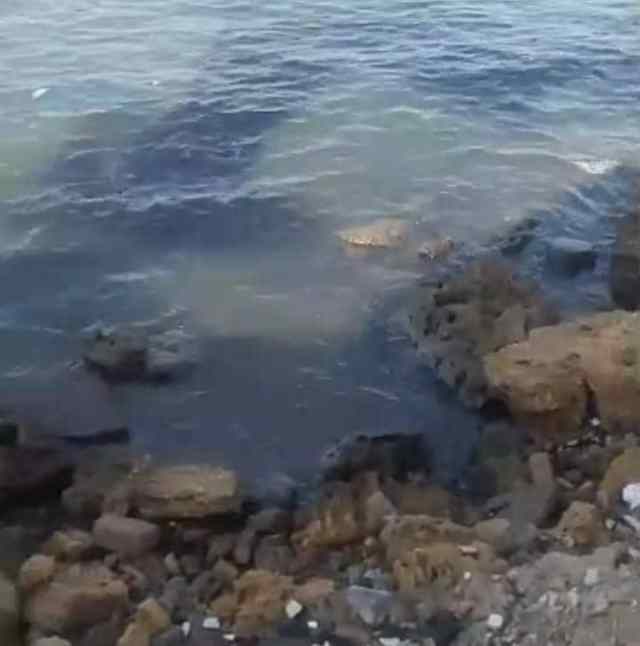
For several days, an oil spill or leak has affected the marine biodiversity and the economy of the fishermen of Carirubana, located in the municipality that bears the same name in Falcón State.
Irene Revilla / Correspondent lapatilla.com
A video captured by local residents on the morning of this Wednesday, June 5th, revealed the oil stain that reaches the shore of this beach and that prevents the boats that would be fouled from anchoring, as well as delaying or impeding the arrival of the sardines schools.
The fishermen again reported the incident, which although it has happened on several occasions, they do not know if it is a broken underwater pipeline or a spill from the Amuay and Cardón refineries that are part of the Paraguaná Refining Complex (CRP).
Carirubana is located between the Amuay and Cardón refineries, and although in the last four years innumerable crude oil spills have been reported due to leaks from the underwater pipelines that crisscross the Golfete de Coro to feed these industrial complexes with oil and natural gas from Zulia State, Carirubana had been one the least affected townships, because it is further away from these areas, compared to Río Seco or Punta Cardón.
Miriam Velazco, main spokesperson for the “José Chemón Rojas de Carirubana” fishermen’s council, explained that in the area there are two fishing organizations that group 156 boats and around 625 fishermen.
She assured that they have been affected by oil spills for some time, but the breeze characteristic of the area disperses them. That’s why some days you see it and others you don’t.
They do not know where the crude oil comes from, since they have not obtained precise information from government institutions.
She also said that this Wednesday a PDVSA-Environment commission showed up, an office that must protect the ecosystem from contamination from the refineries, accompanied by the Aquaculture and Fisheries Institute of the Falcón state and the National Fisheries and Aquaculture Research Center, which would prepare a report and agreed to get back in touch with the fishermen’s spokespersons.
Last year, the National Government announced a sanitation and environmental study in Falcón to verify the state of marine biodiversity in one of the most important fishing states in Venezuela, and although the inhabitants of the fishing areas recognize that they have been seen in their sectors , they have not been given any type of information about or the results of these studies.
In Venezuela, there is an average of seven oil spills per month, according to the Political Ecology Observatory, which warns of worrying environmental and economic implications.
According to the analysis of the year 2023, Falcón was in second place with 32 spills, after Zulia with 40 cases and Anzoátegui with 8.
The Political Ecology Observatory also explains that these figures do not reflect the real magnitude of the environmental problem caused by the continuous spills.

